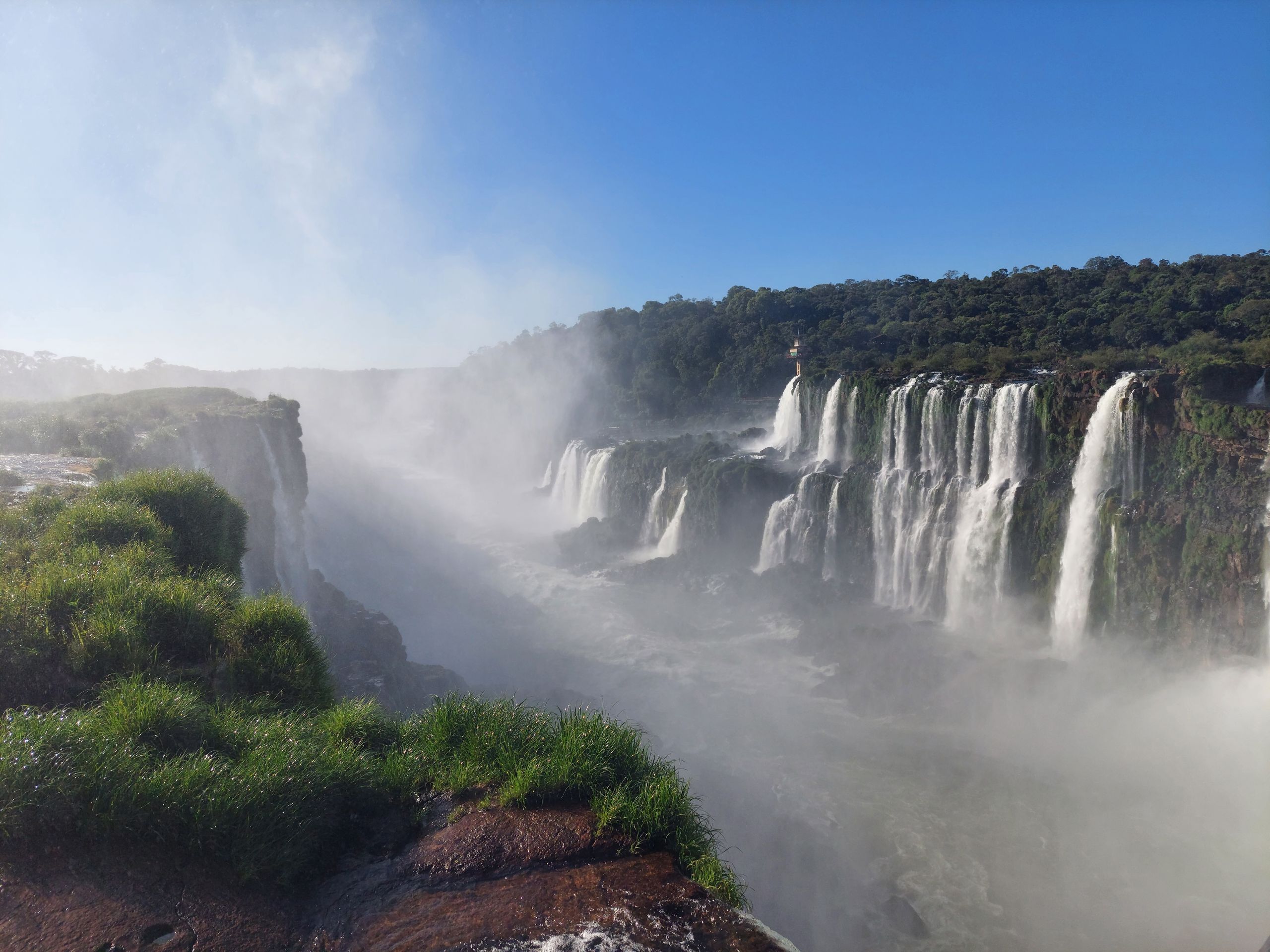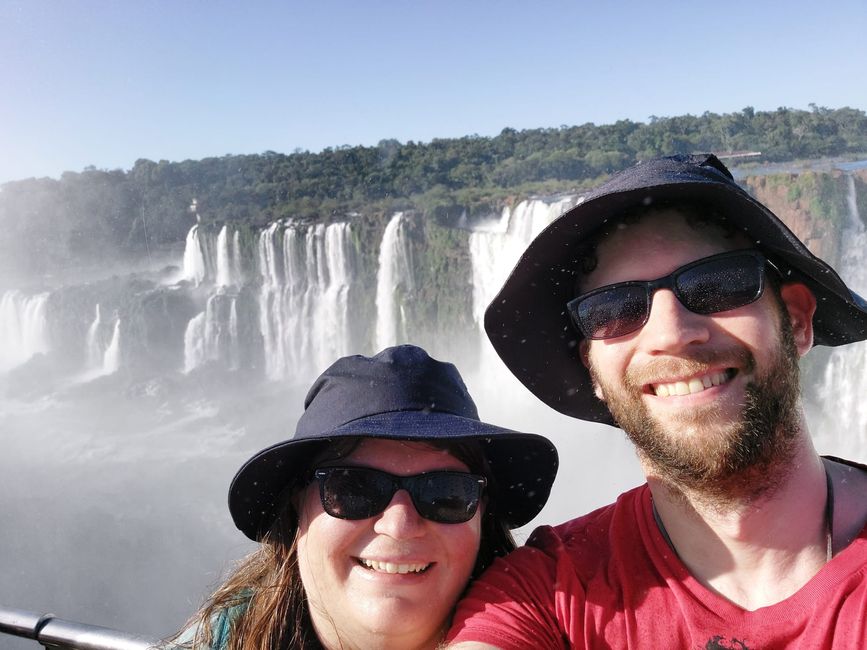Tse dingwe go tšwa go Washington State
E phatlaladitšwe: 10.08.2023
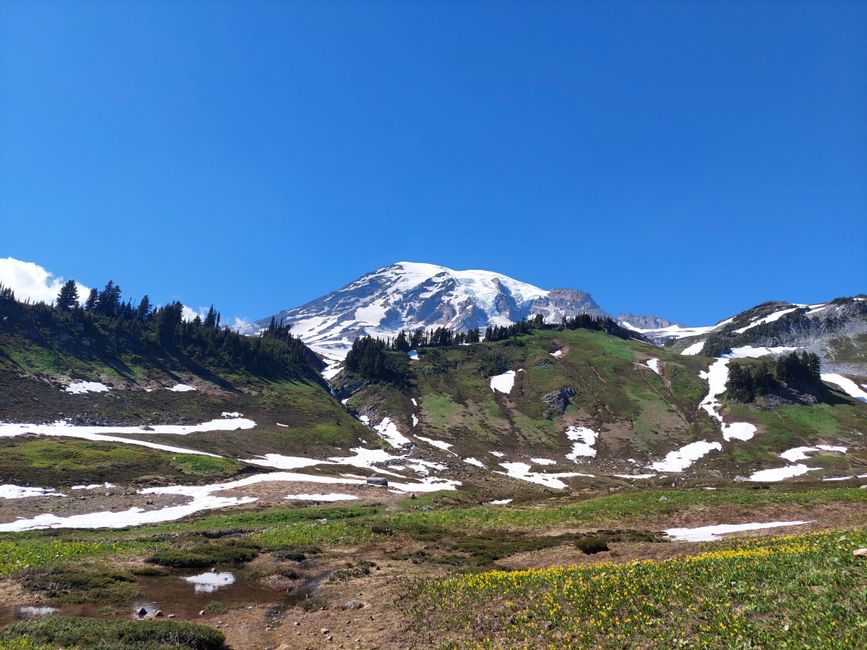
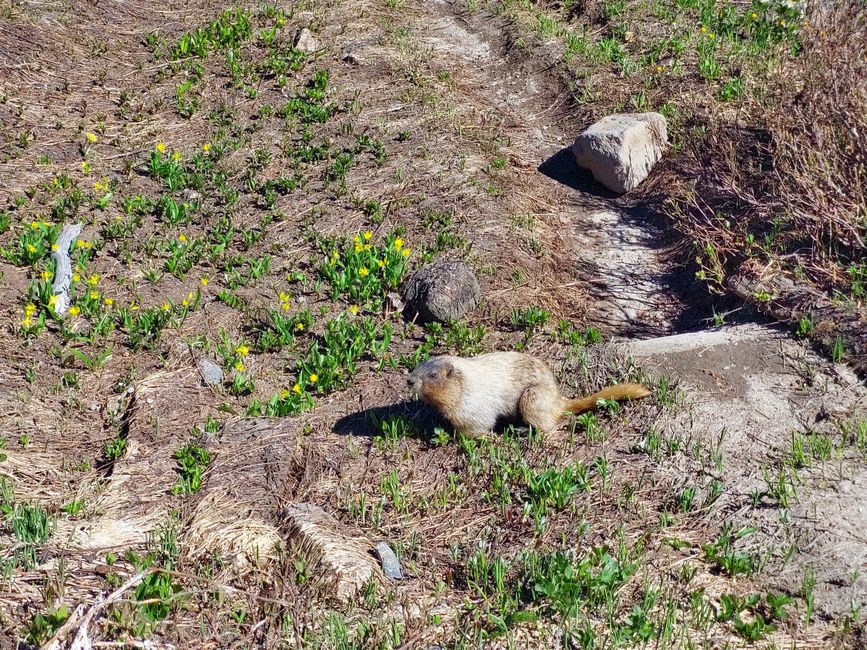
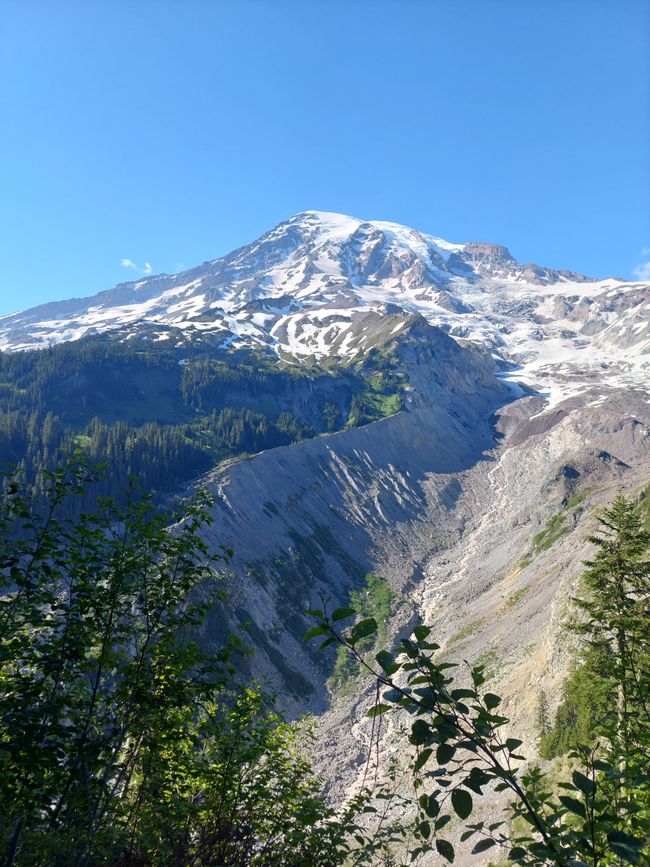

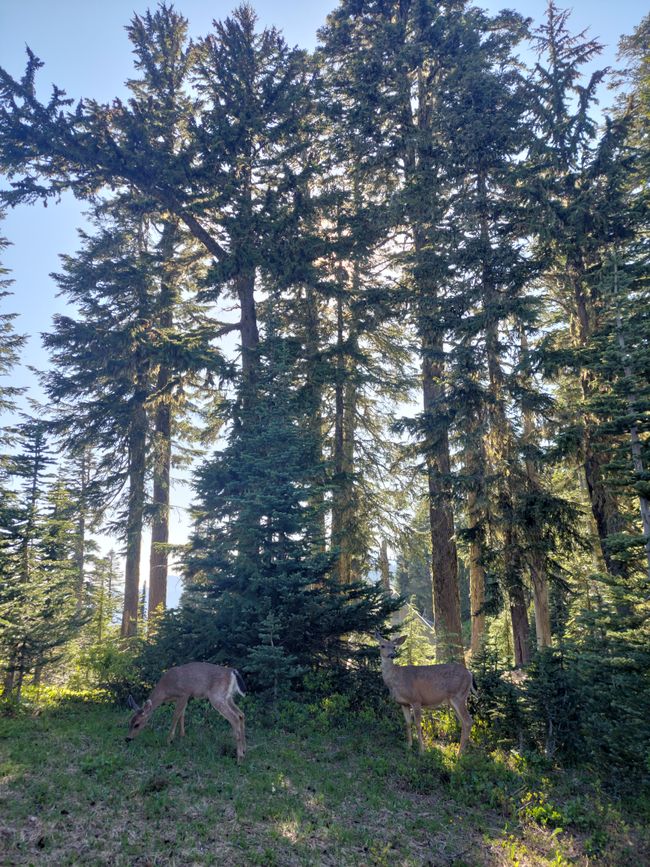
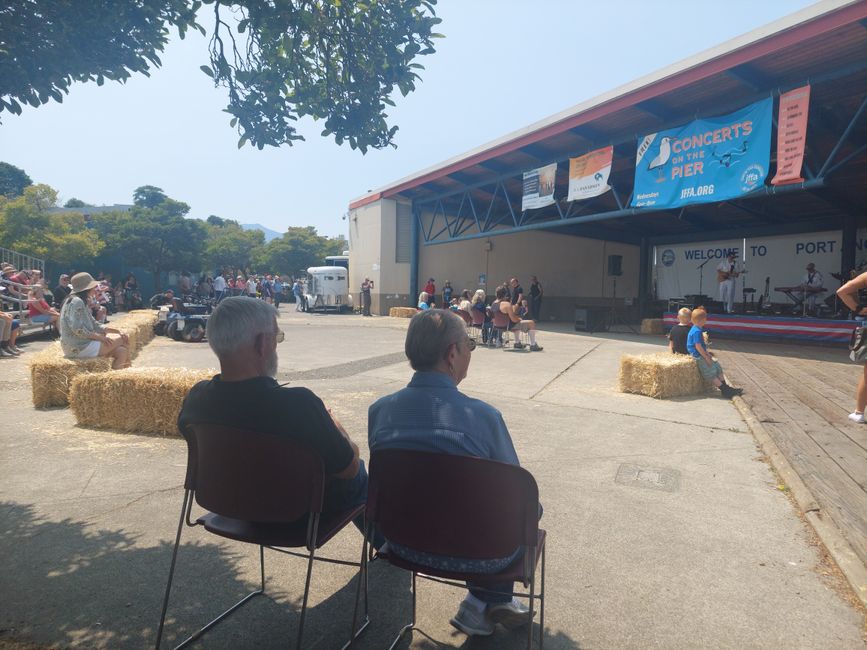
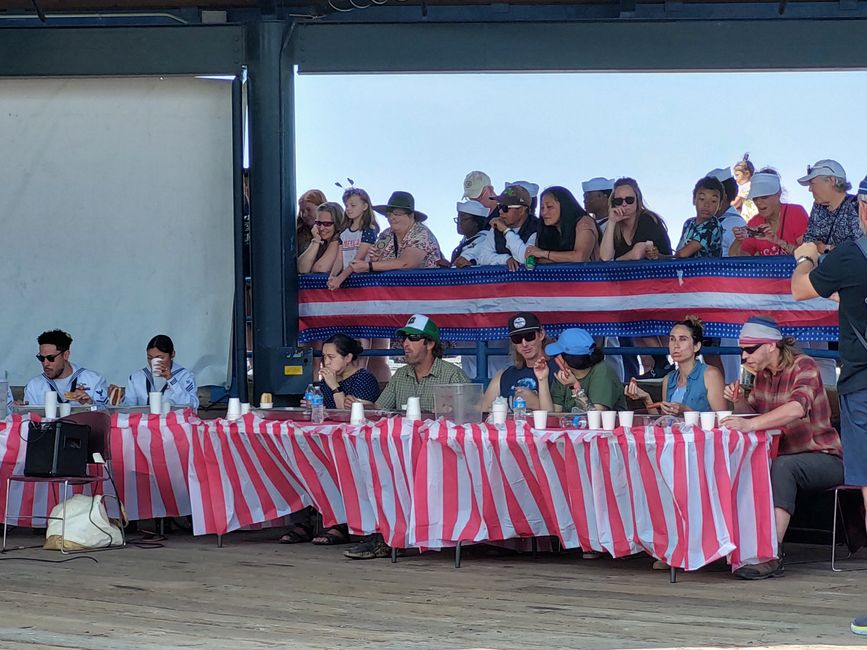
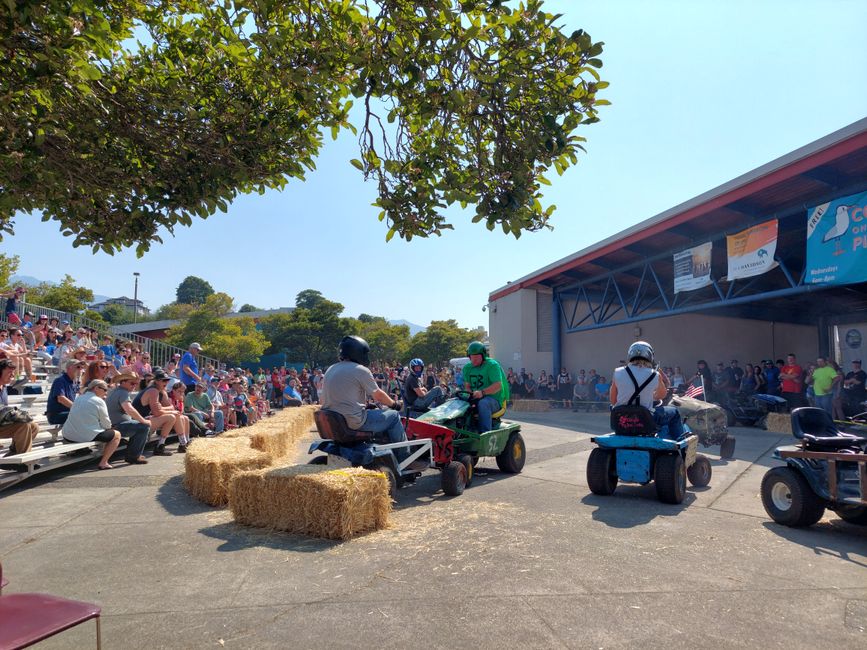
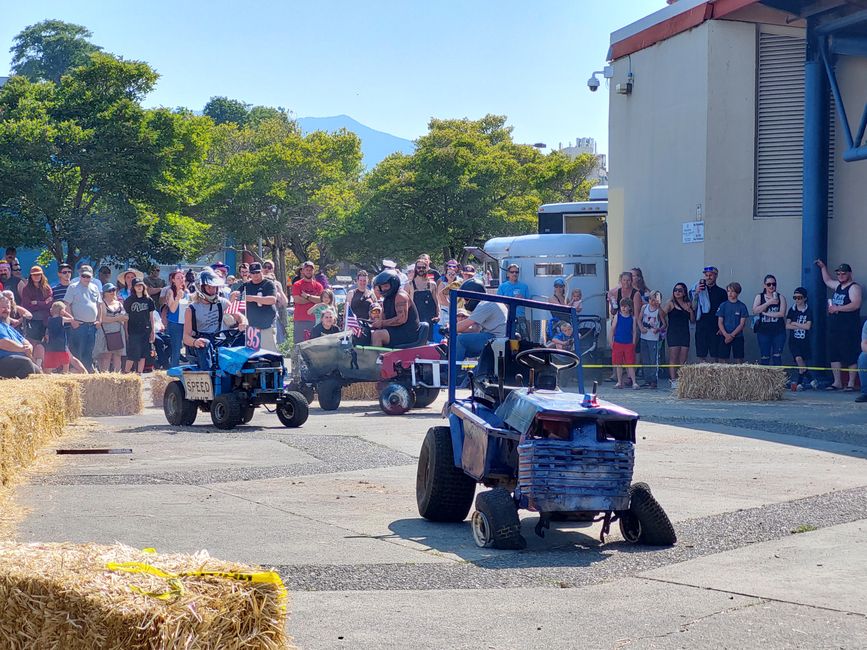
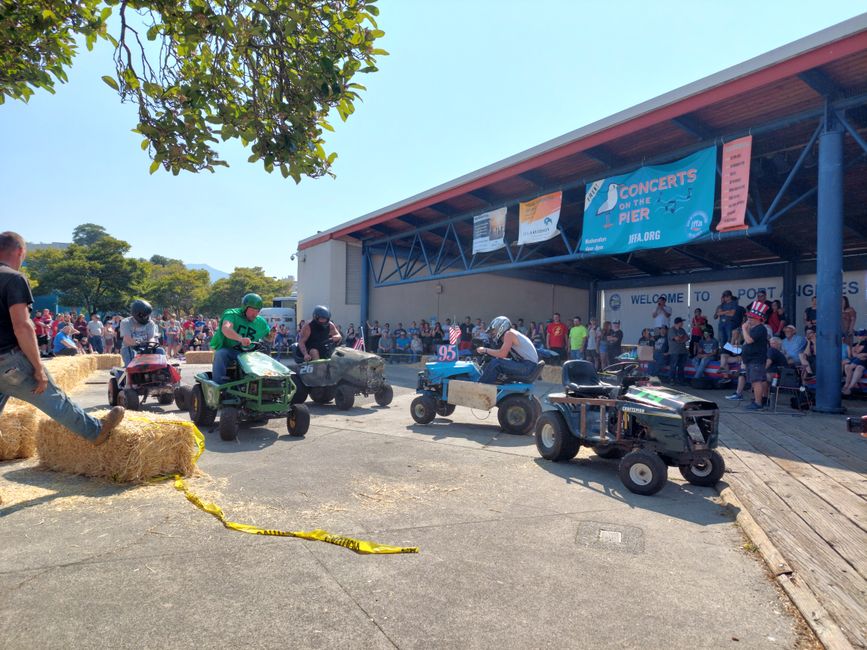
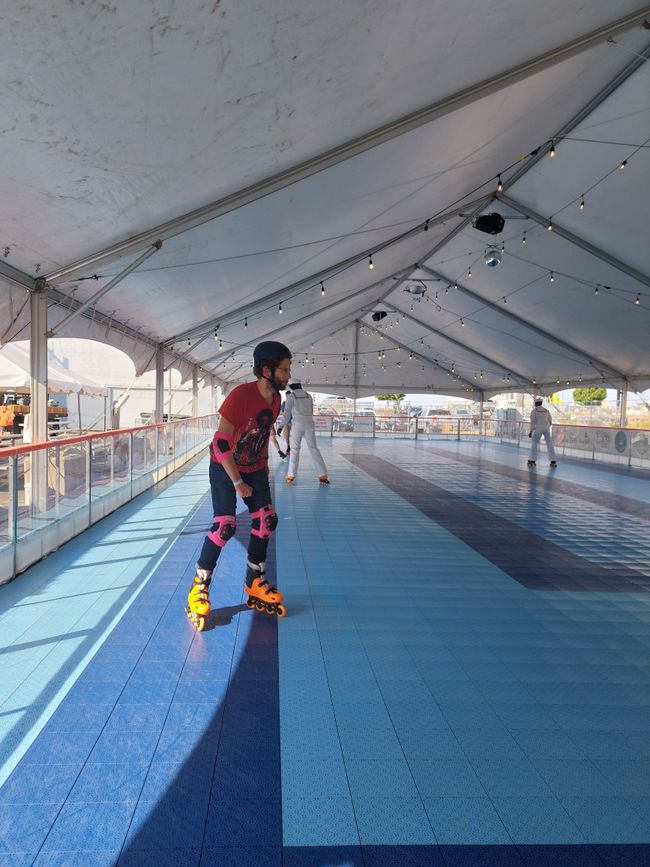
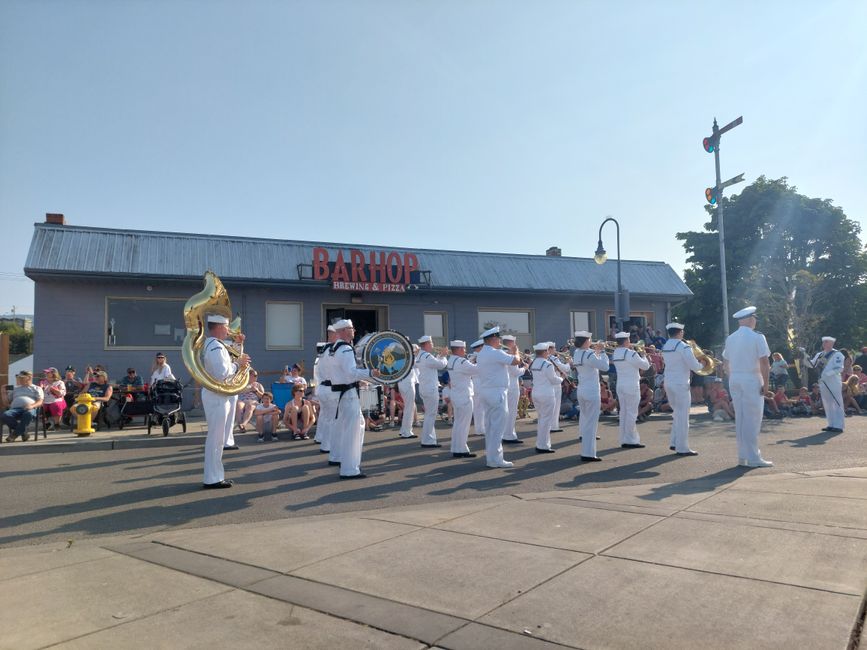
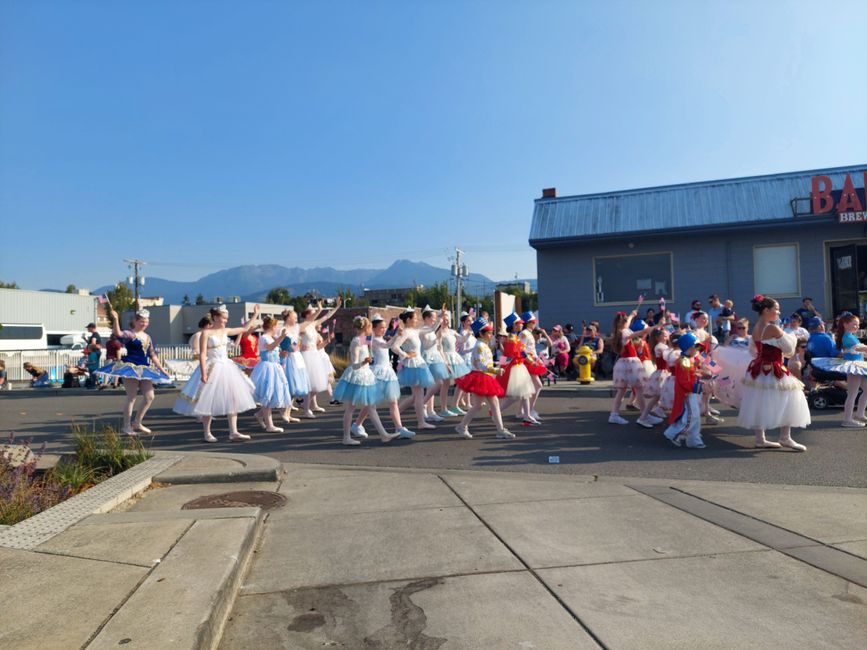
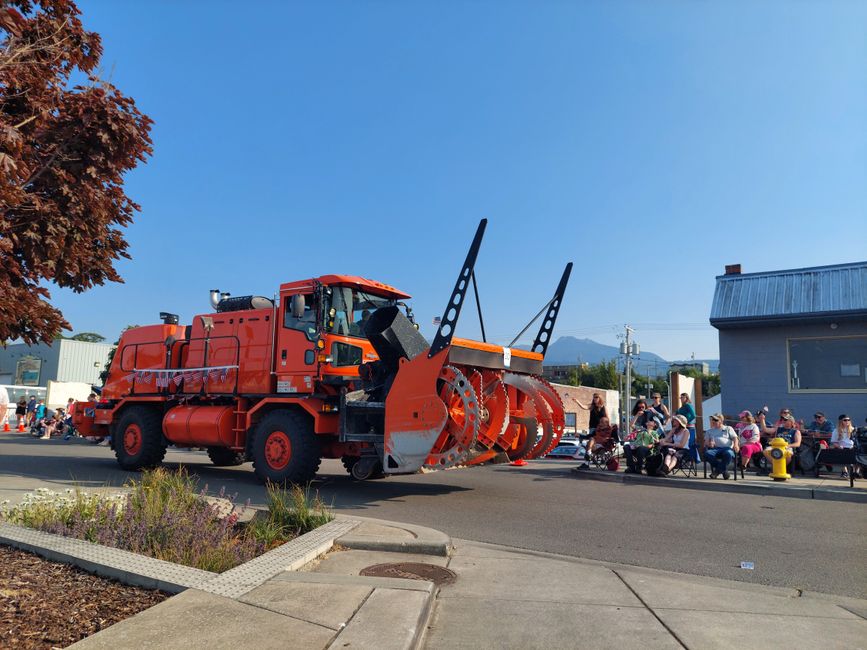
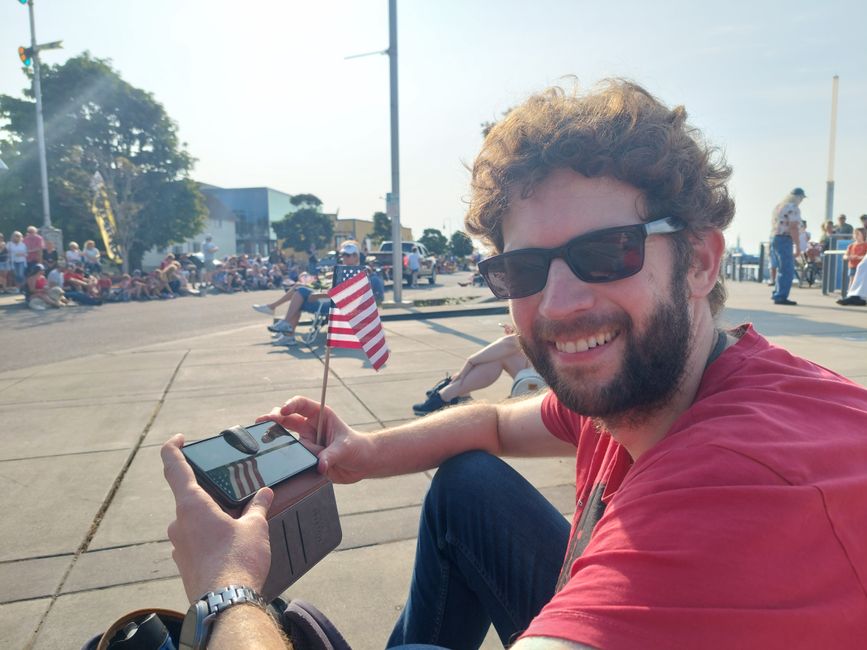
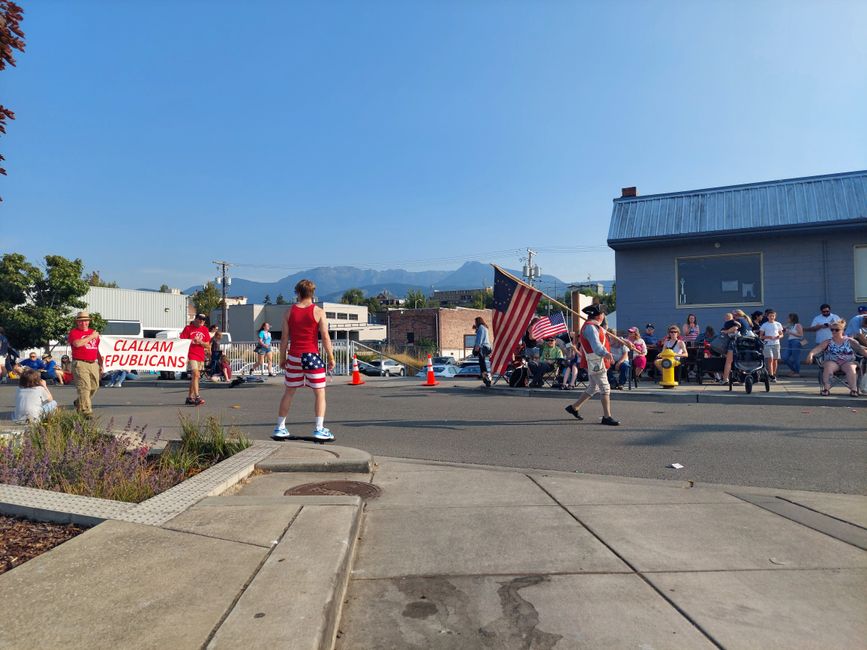
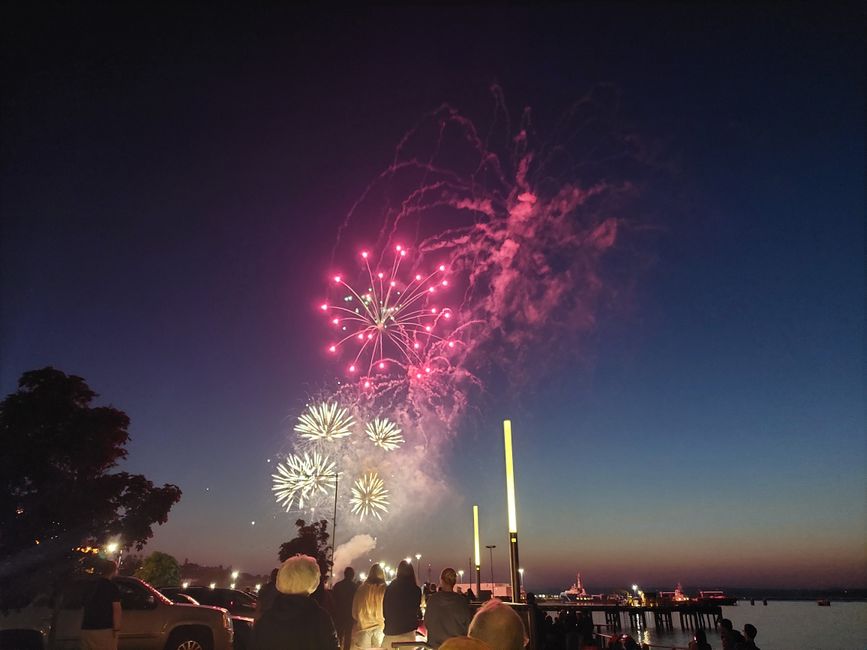
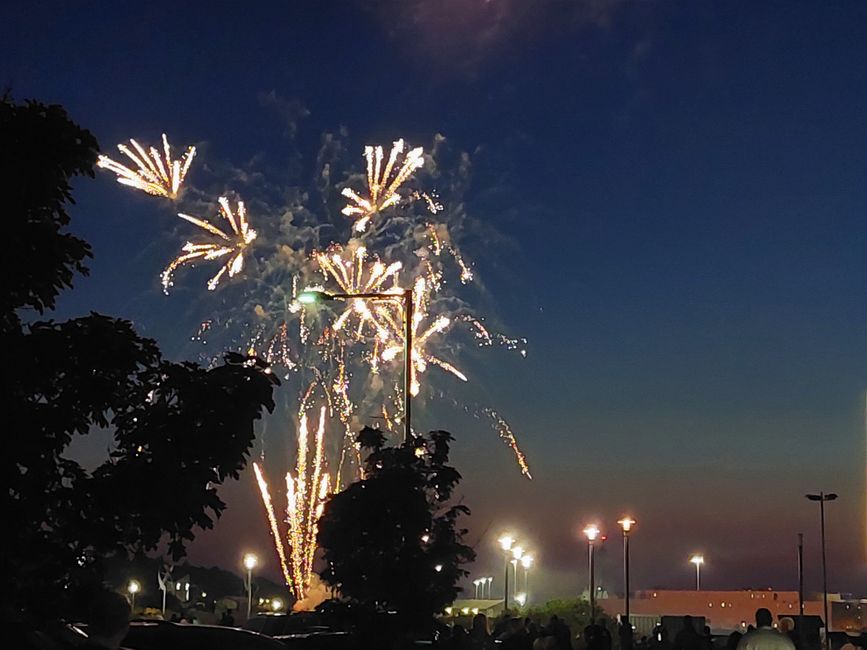
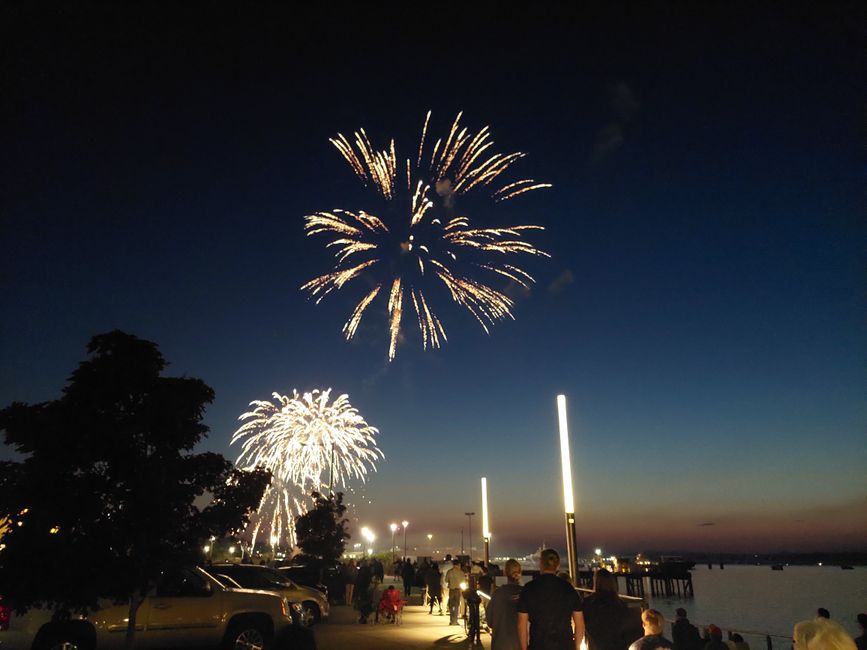
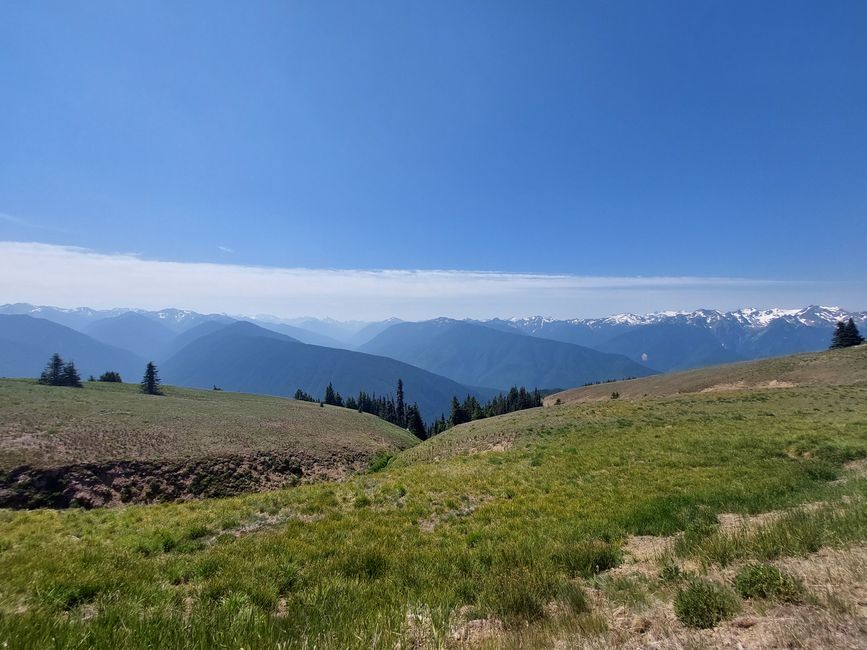
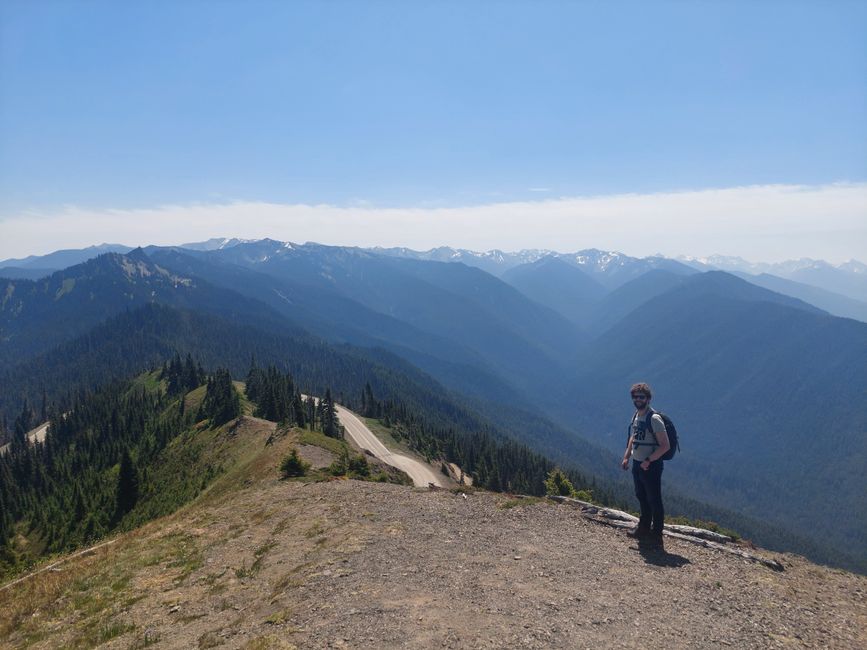
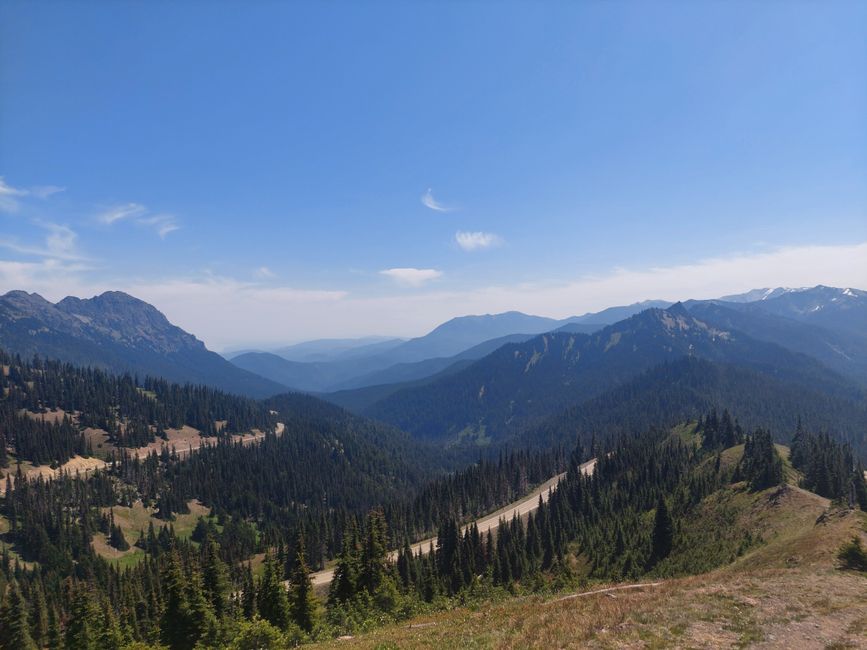
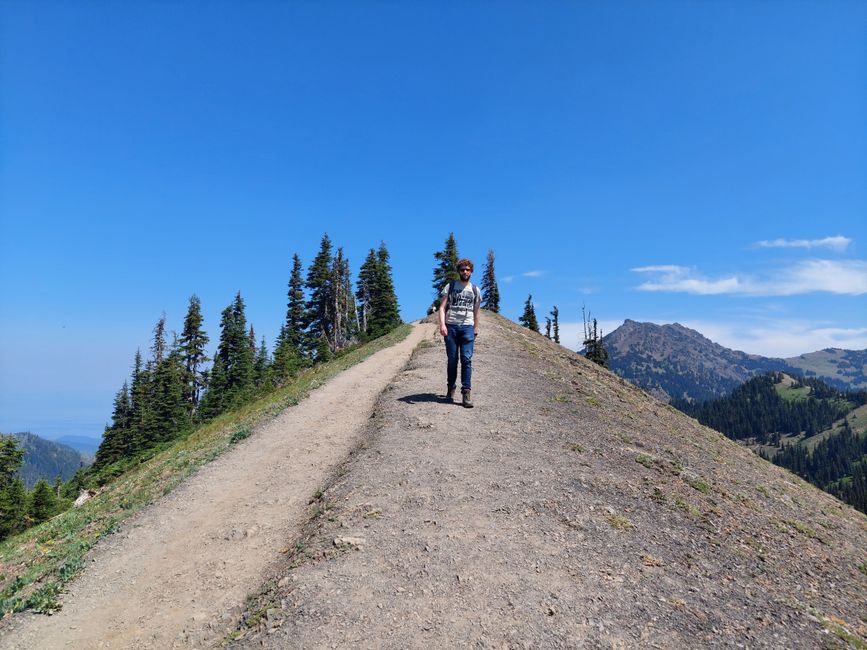
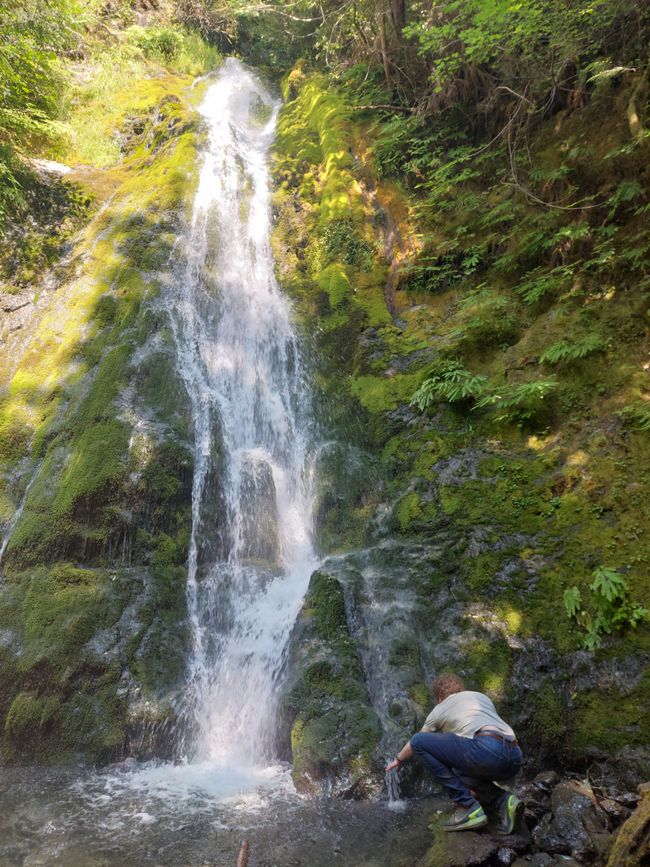
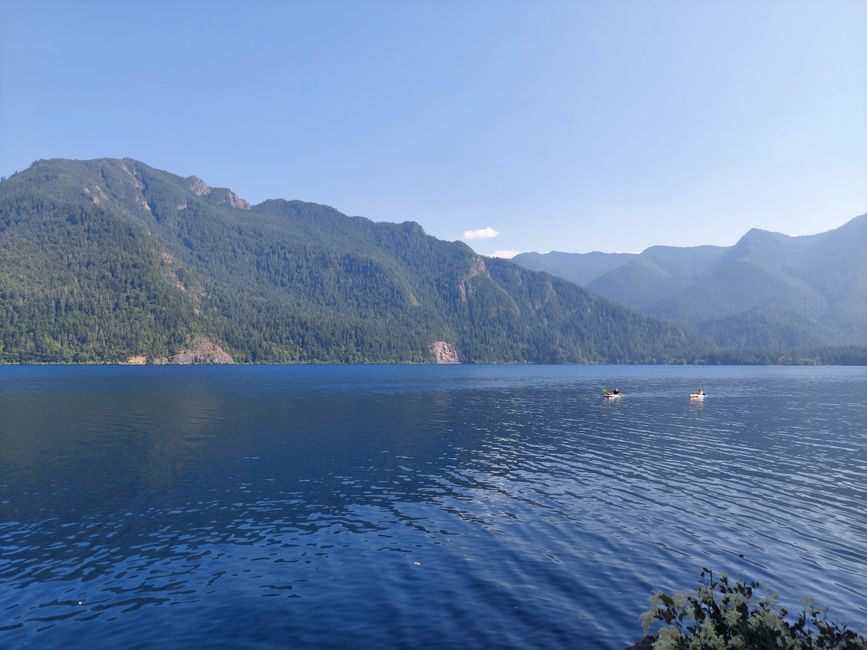
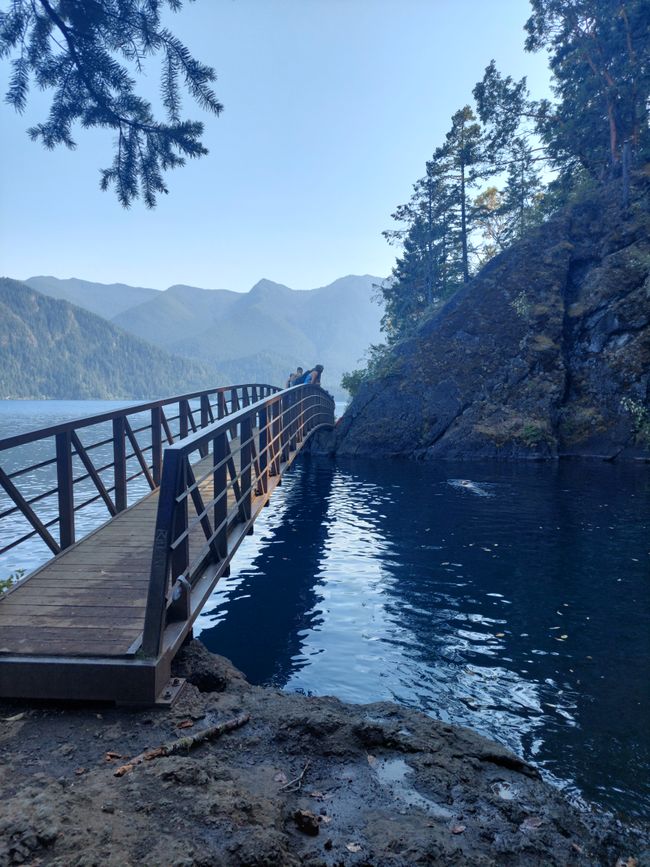
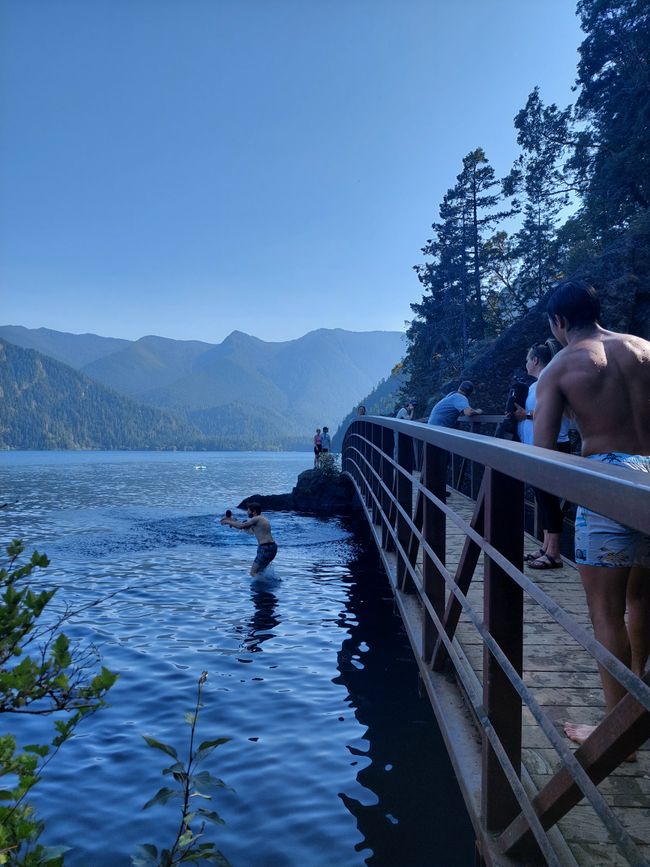
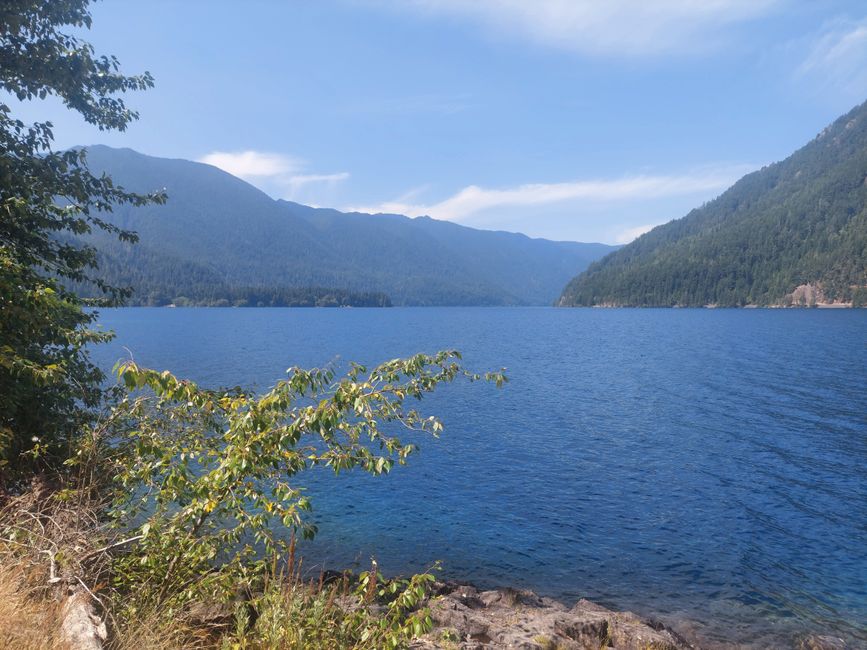
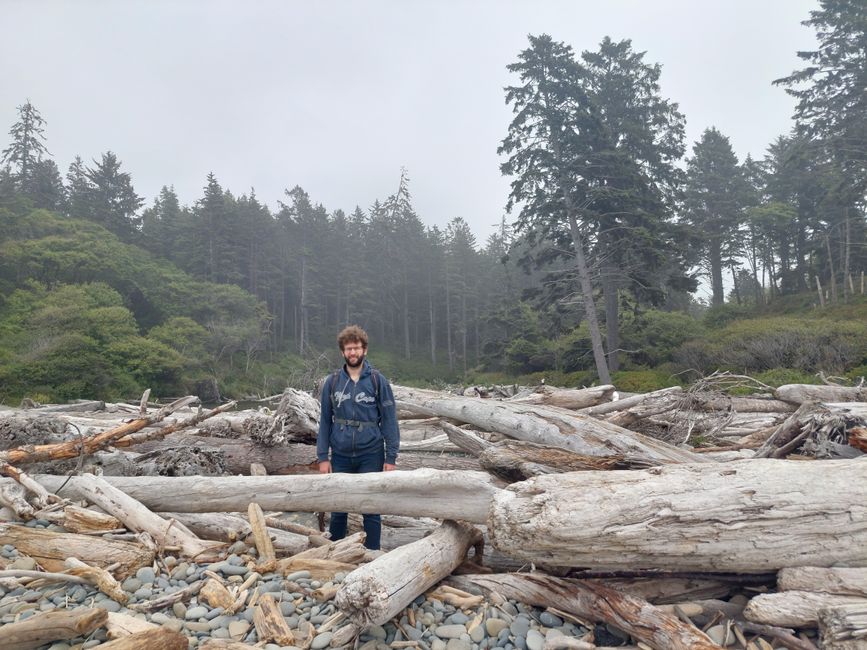
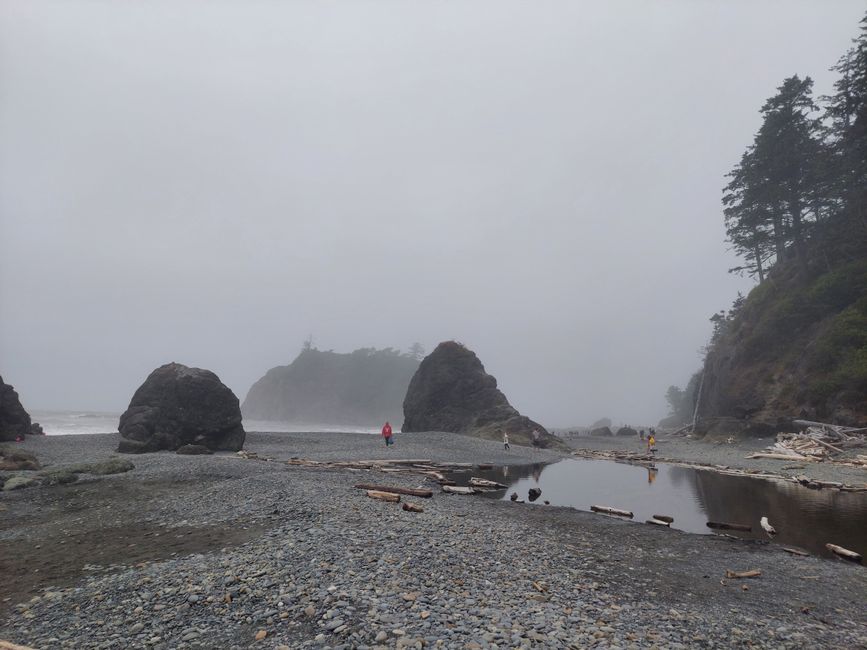
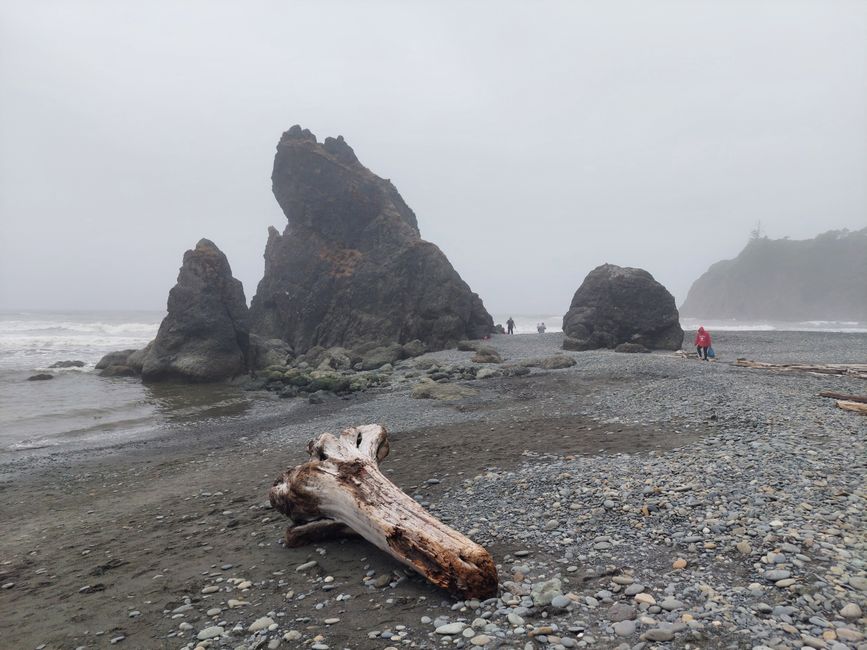
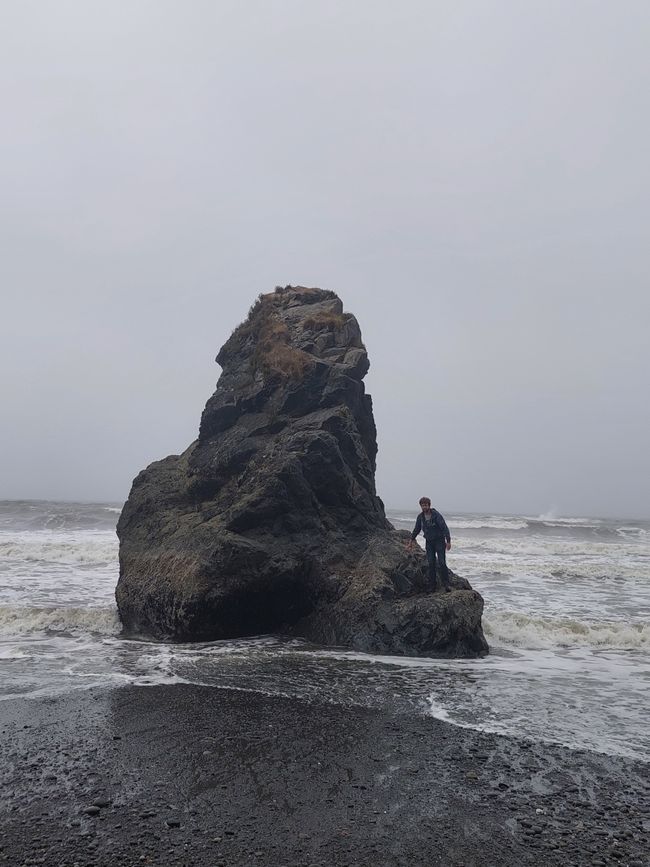
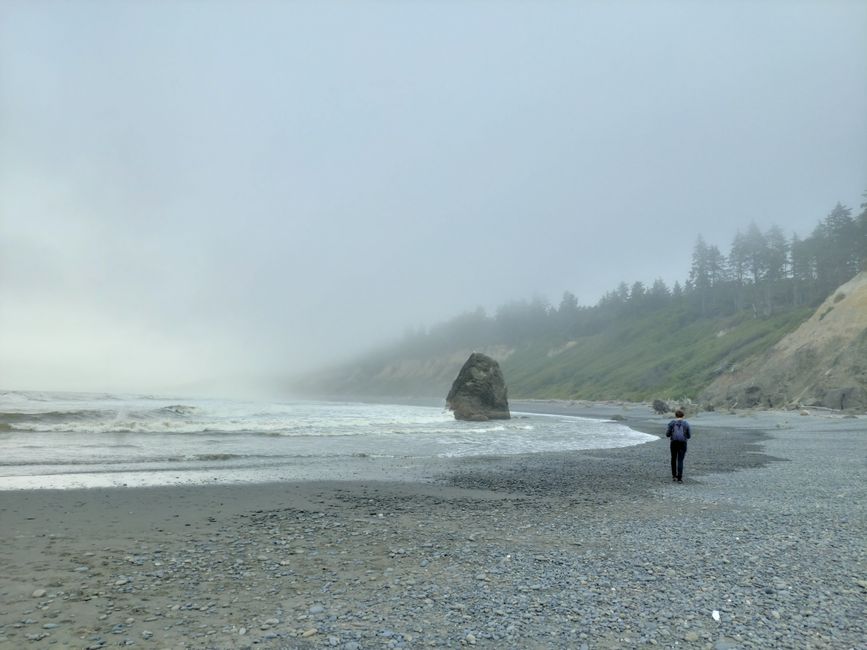
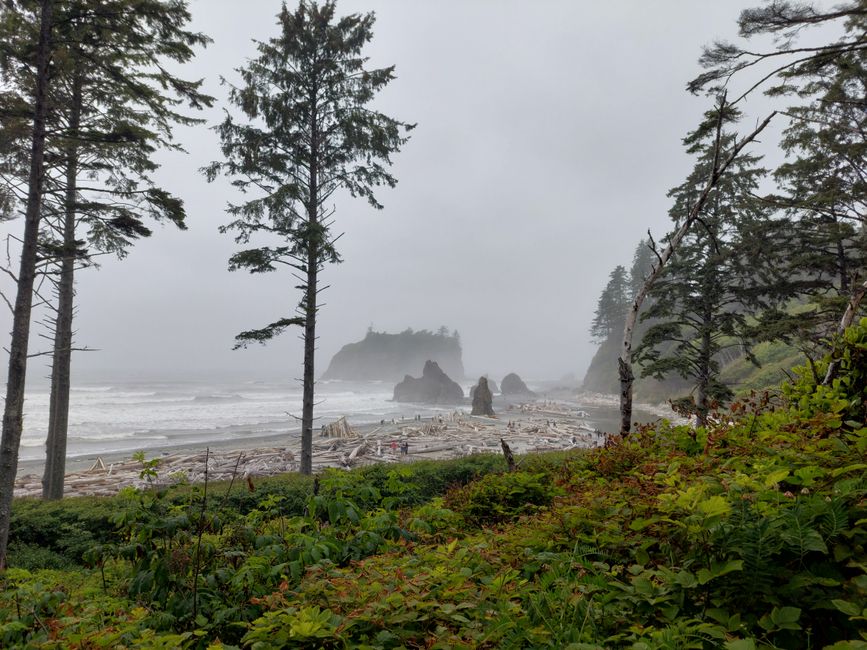
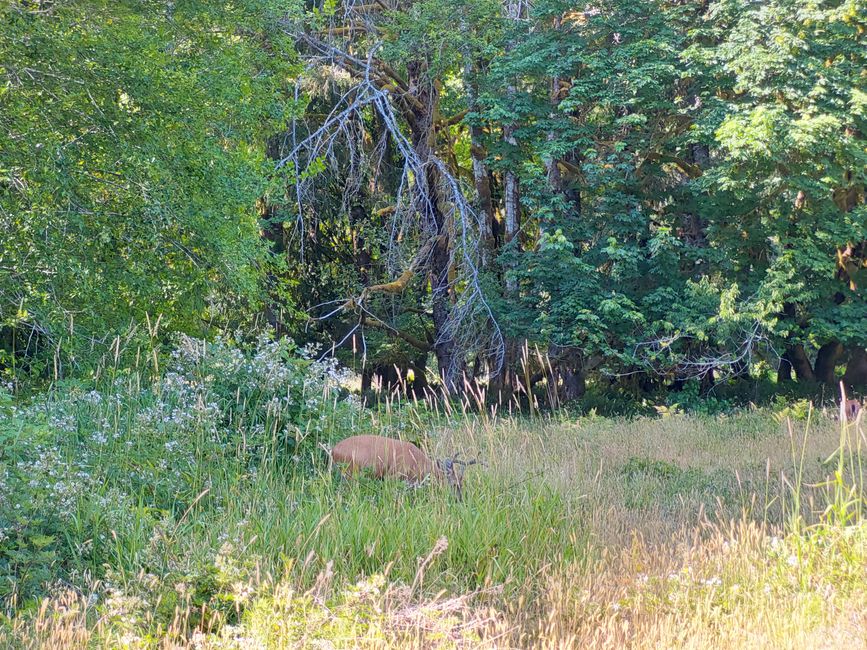
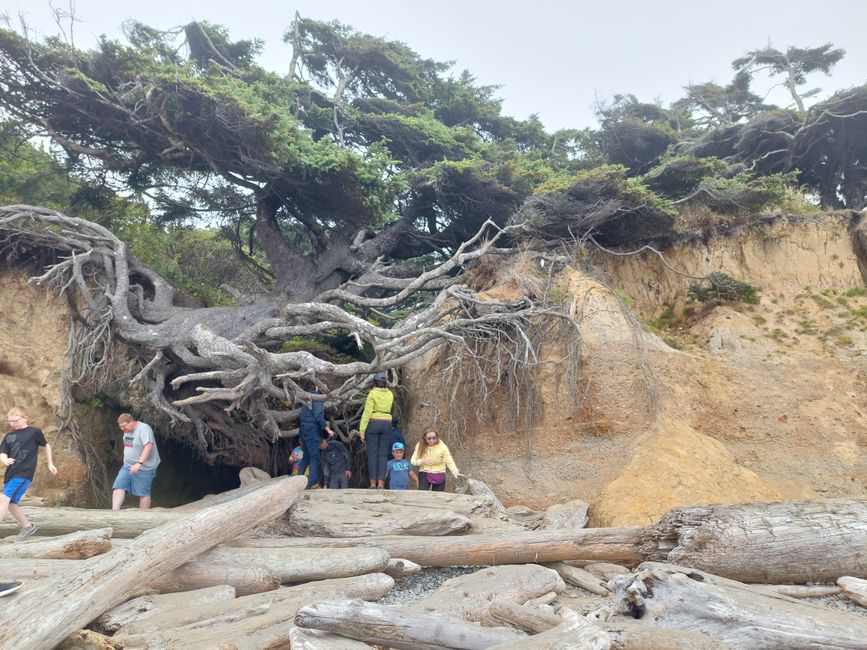
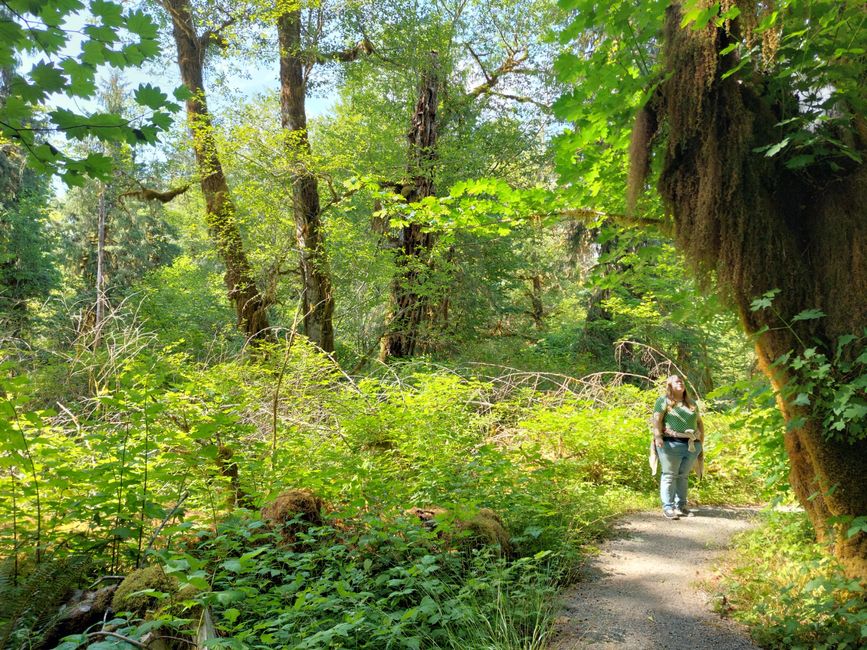
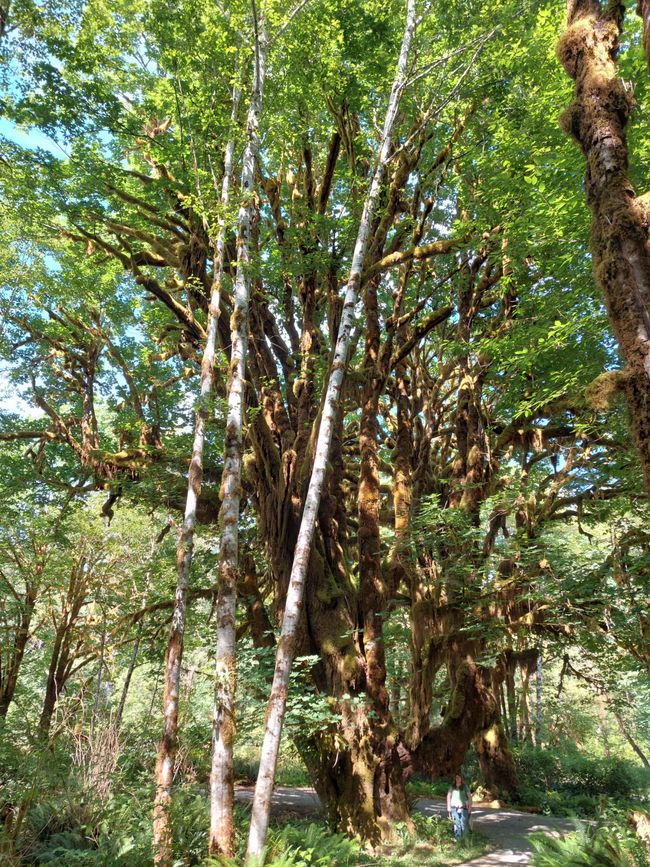
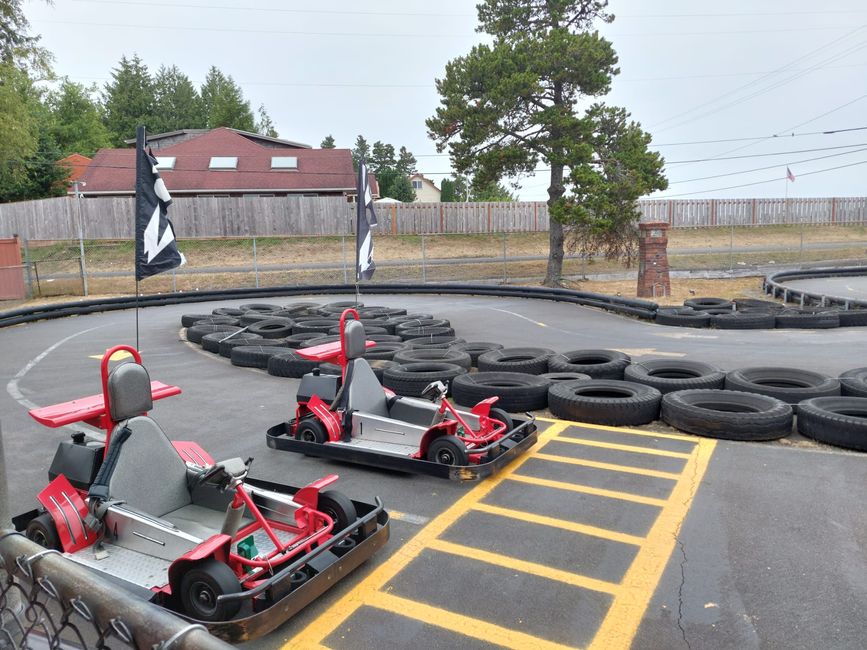
Ingwadiše go Lengwalo la Ditaba
After leaving Seattle, the largest city in the state of Washington, we continued to explore this state in the following days. We visited two of the three national parks there and had the opportunity to experience an authentic celebration of the national holiday in a small American town.
The first stop was Mount Rainier National Park, which we planned to spend a day exploring. Mount Rainier is a volcano and at 4392 meters, it is an impressive sight that can be seen from Seattle on clear days - which is rare, but we were fortunate to have such clear weather. Before entering the national park, we encountered traffic on a Sunday. We decided that in the future, we would try to avoid visiting national parks on weekends, but it may not always be possible, as there are many more national parks ahead of us. At the entrance, we purchased an America the Beautiful Pass for $80, which is especially worthwhile for us because it grants us entry to all national parks in the USA. We drove up a good portion of Mount Rainier, found a parking spot, and hiked two easy trails from there. These trails took us to a waterfall, sometimes through snow, and provided beautiful views. We also saw marmots and deer, which were much less shy than those we are accustomed to. Our next accommodation, a Comfort Inn & Suites, was much more comfortable than our budget motel in Seattle - which was not difficult. Upon our arrival, the staff asked if we even had a car because we only had backpacks instead of suitcases. Of course, we had brought the same luggage as we did in South America because we had not been home in between, but a true backpacking trip in the USA would have been much more challenging. Even when we later walked down the street to get pizza, we realized we should have brought the car because there were no seating areas in sight. So we took our pizza back to the hotel on foot to eat it there (fortunately, it was still warm enough). Since then, we have been more careful in selecting restaurants on Google Maps because it usually indicates whether there is seating available.
Our hotel also provided breakfast, which was disappointing, but we did not expect much. There was everything, yet somehow nothing substantial: the juice was watery, the scrambled eggs tasteless, the pastries and the waffles that could be made by guests were just fillers without much nutritional value. Only the coffee was decent, and there was also fruit and yogurt, which provided some sustenance for the day. The TV in the breakfast room was practically only playing commercials. However, what really shocked us and would be unthinkable for us, was that there was only disposable tableware, so after breakfast, we had to throw away all the contents of our table into the same trash bin. After this experience, we appreciated even more that we would have self-purchased breakfast in the majority of the following days in our respective accommodations. To better equip ourselves for this, we went to the nearest Walmart. This part of our itinerary actually filled the entire remaining day. First, we searched for a cooler box to keep items such as the typical large milk and juice containers for breakfast in the USA, as well as Sebastian's medications, at the right temperature when we are traveling between accommodations in the car, even in very high outdoor temperatures like in the Mojave Desert. We had the idea of connecting an electric cooler box to the car. We had already figured out which power outlet would work even when the ignition is turned off, although we would have to be mindful of the car battery. However, after an extensive search in several locations within the enormous retail space and asking a staff member, we could only find a cooler box without a power supply, which is normally filled with ice from an ice machine that is mandatory inventory in every hotel and motel here. Instead, we were planning to use ice packs, which are placed in a freezer in between use, as we do at home. We thought it would not be difficult to buy ice packs, but we could not find any, and initially, the staff was equally clueless, until finally, with the help of three female employees, we located some. We also purchased a set of colorful reusable plastic dishes for children, which turned out to be perfect for our future meals in hotel rooms. Next, we looked for a SIM card to have internet access on the go because during our time in South America, we realized how practical it can be. We were aware that it would not be as cheap as in Chile and Bolivia, but at Walmart, we got the impression that getting a SIM card as a tourist in the USA is much more difficult. The employee in the mobile phone department suggested buying a cheap phone with a prepaid plan, but we thought it was nonsense to buy a new phone for three months. However, according to the employee, if we were to purchase a SIM card separately and insert it into our phone, our phone would be locked to that specific SIM card. There are phones with SIM locks, but we could not imagine such a thing happening. We doubted the expertise of this department and decided to do more research and go to an electronics store later. Maybe it would be enough for us to have access to WiFi in our accommodations - we don't need internet for navigation on the road because we have a Tomtom GPS that Judith's parents had used in the USA before. At Walmart, we wanted to buy food for the evening because now we were making sure that our accommodations always have a refrigerator, and therefore, likely a microwave as well. The selection of ready-to-eat meals, which often seemed healthier than some restaurant meals, is extensive in the USA. However, unfortunately, we could not find ready-to-eat meals in the refrigerated section, only frozen ones, and since we had a long drive to our next accommodation, it was not a viable option. It became clear to us that while a Walmart may have a wide variety of items, it is better to visit a regular supermarket for a good selection of groceries. So we went from our next motel to a nearby supermarket and bought a delicious dinner there.
The next day was a very special day: July 4th, the national holiday of the USA. On this day, strange things happen all over the country, and Judith had the idea that we could visit a small town during this time, where we could witness all the events taking place up close. This plan worked out perfectly: in the picturesque coastal town of Port Angeles, we saw a series of American clichés unfold right before our eyes in a very entertaining way. We unfortunately missed the first event, the Apple Pie Baking Contest, but that was probably the least spectacular. When we arrived at the stage, a band was playing and they were quite good. We were surprised that a local band delivered such quality performance, but then we learned that the Navy had docked in Port Angeles and was participating in the festivities, including their own band. Participants were being sought for the Hotdog Eating Contest. The host tried to convince passersby to participate with tasteless jokes, but initially, he had no success. However, when a man finally stepped forward and volunteered, more and more people followed, and even half of the Navy joined in. Everyone had to eat as many hotdogs as possible. Fortunately, they were allowed to drink water in between. The winner ate ten hotdogs. Although it was not as many as the reigning champion in New York consumed on the same day (62 hotdogs in ten minutes), we were impressed. The remaining hotdogs were distributed to the audience, and we also received some - they were not bad at all. Next was the Lawnmower Derby: men competed against each other on their lawnmowers, although we did not understand the exact rules. In the first race, half of the participants drove in circles while eating hotdogs and drinking Sprite after a few laps, before they were allowed to continue driving. In the second race, the others took their turn, but the fastest participant from the first race also raced again. We are not sure if there was a result, but in all subsequent rounds, the objective was simply to destroy each other's lawnmowers, and in the end, the winner with the last working vehicle was determined by applause. It was very absurd, but we had a great time. There was a cheerful atmosphere even without alcohol because it is prohibited to consume alcohol outdoors. The next item on the official event program of Port Angeles was 'Rollerskating' - which was probably just a suggestion to pass the time until the next event, as the nearby small rollerskating rink is open all year round. Sebastian gladly accepted the suggestion, rented inline skates for ten dollars, and skated a few rounds while his favorite music was playing. Some children, teenagers, and two Navy sailors also enjoyed their time there. Afterwards, we found a spot in the city with a good view of the street because the parade was about to begin. Many floats representing local clubs and organizations passed by us. We saw a lot of stars and stripes, received candy, and were handed the schedule of the Lefties (the Port Angeles baseball team) and a package of American flower seeds, among other things. We were initially excited to plant them at home, but then we realized that we could not bring seeds into the country. So we kept them in our luggage until we could give them to someone else. After eating dinner in the city, we returned to the festival grounds with high expectations because a band was scheduled to perform again. However, this time it was truly a local band and they were not very good, so we went to the nearby beach for a while before finding a new spot to watch the fireworks. The official fireworks display of the city was long and beautiful, and even on the walk back to our accommodation, we saw many other fireworks in different directions. Although it was not 'our' national holiday and we do not identify with this country in many ways, we had a wonderful day. We cannot remember if we have ever experienced such an exciting celebration of German Unity Day.
The second national park that we visited on consecutive days was Olympic National Park. It is known for its diverse landscapes, which matched our amazing impressions. Our first stop was Hurricane Ridge, a parking lot that often closes early in the day due to limited space. Fortunately, we had a better day this time and it was not too crowded. During our visit to the first national park, many people likely had an extended weekend due to the national holiday, but the day after the holiday, many had to go back to work (or sleep in or recover from celebrations at home). So we were able to park at Hurricane Ridge and hike along a trail that offered impressive views of partially snow-covered mountains. Afterward, we parked near a waterfall (Madison Falls), walked a short distance to it, and climbed down. The next stop was a large lake (Lake Crescent), where we also hiked along a trail. We came to a small bridge where we could climb down to the lake. Sebastian briefly went swimming in the lake (it was very cold), and then Judith asked if he wanted to jump from the bridge like other people were doing. He was initially unsure because he had never done something like that in his youth, but then he felt the need to make up for lost experiences. After hesitating for a long time, he finally jumped once, and it was not a particularly pleasant experience, but Judith wanted to take a picture, and at that moment, someone stood in front of her, so he jumped a second time. He was relieved that he safely made it back to shore over the slippery rocks and painful pebbles each time and decided once again that he should finally get water shoes. The next day, we saw completely different landscapes in this national park, specifically the Pacific beaches and a rainforest: Ruby Beach is known to sometimes have small ruby-colored stones, but we did not find any. However, there were logs scattered around, which we had to climb over, and there were rocks protruding from the ocean, creating a slightly mystical atmosphere with the gray sand and foggy air - an unexpected experience in this national park based on our previous experiences. At Kalaloch Beach, there was also gray sand and more logs. Additionally, there was a tree near the edge that had grown in such a way that you could walk through a gap under its roots. This tree is called the 'Tree of Life' because it managed to survive in such a challenging environment. Finally, we took a longer loop trail in the Quinault Rain Forest. Rainforests do not have to be tropical - we had already heard about another non-tropical rainforest near the coast in Chile (but decided against visiting it at the time). The existence of the Quinault Rain Forest is favored by the fog, which often covers the coast here. Additionally, large amounts of rain occasionally fall here - just not while we were present, as we seem to be having a lucky streak regarding the weather. On the loop trail, we mainly saw trees and ferns. At one point, we were able to observe elk up close. In English, elk are called 'wapiti', but they are not moose - which are called 'moose' in English - but rather another smaller species of deer.
Our last accommodation in this state (in Westport) was more affordable than the previous basic motel and offered a few amenities. The property included a go-kart track where guests could ride for seven dollars. When we arrived, we were still quite exhausted from the past few days, but because the go-kart track did not open early the next day, we drove a few more laps that evening, more than usual, as we were the last ones before closing time. After our arms were completely exhausted in addition to our legs, we relaxed in the whirlpool in our room (!), drank the complimentary apple spritzer, and enjoyed the complimentary chocolate and microwave popcorn. On this evening, it actually felt a little bit like being in a 'land of unlimited possibilities'... In front of our room, which also had a fireplace, it said 'Paul Allen stayed here'. Sebastian admittedly did not immediately remember that Paul Allen co-founded Microsoft with Bill Gates, but he is also not particularly interested in Microsoft. Judith isn't either.
We had gained many beautiful impressions of Washington State and continued driving south along the coast. We wondered when we would finally find parts of the Pacific coast that were not as frequently foggy. Somewhere in California perhaps, but for now, our next destination is Oregon.
Ingwadiše go Lengwalo la Ditaba
Karabo
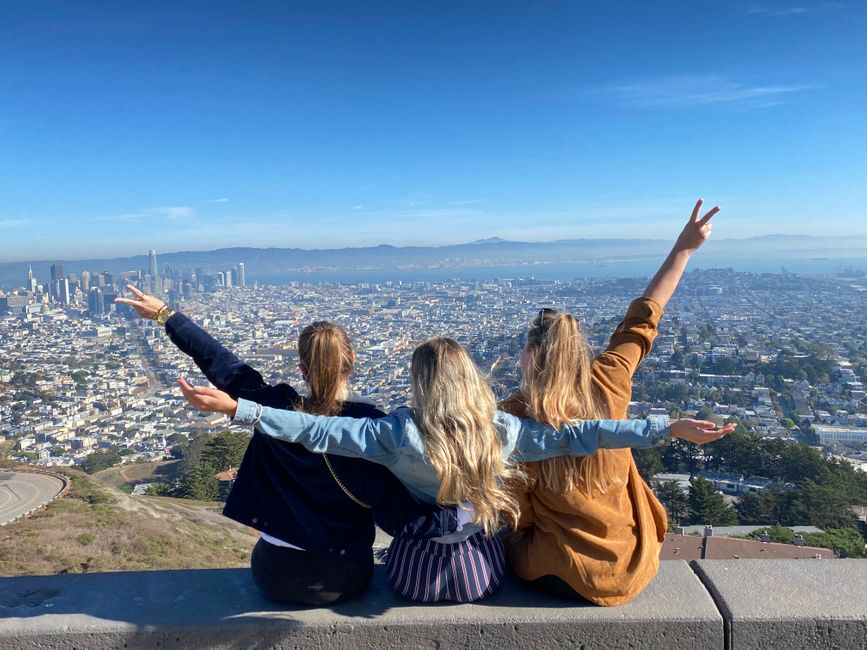
Dipego tša maeto USA
